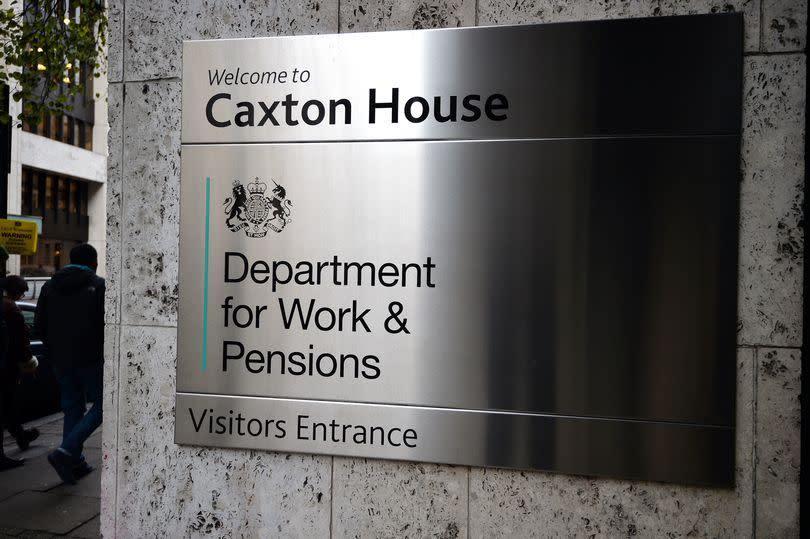DWP will look for 'two things' when it starts checking benefit claimants bank accounts

The Department for Work and Pensions (DWP) has outlined the two main factors it will be scrutinising when its new powers to inspect claimants' bank accounts come into effect. These are part of an effort to reduce benefit fraud, debt, and error.
The measure, known as "Third Party Data Gathering", is a form of "data sharing" power. The DWP said it necessitates third parties, such as banks, to supply details that could mean a claimant does not fulfil the eligibility requirements for the benefit they are receiving.
Under the current Universal Credit regulations, you are ineligible if you possess over £16,000 in cash, savings, and investments. The DWP has declared this will be its "main priority", reports The Mirror.
Read more: DWP proposes changes to way PIP is paid to 3.5 million claimants
Read more: DWP warns Universal Credit claimants to look for urgent message from this week
It will also track whether claimants are residing abroad for longer than permitted by the rules. A recent amendment to the bill - which is currently moving towards the House of Lords - also compels banks to monitor their customers who receive these benefits, and report to the DWP if an account exceeds the capital limit or is utilised overseas for more than four weeks.
The DWP has reassured people that under new measures they will only receive "limited and relevant" information, which could indicate potential benefit fraud. However, this won't include access to bank accounts or insight into claimant expenditure.
They had previously announced plans to monitor accounts from the UK's top 15 banks, covering 97 per cent of benefit claimants' accounts. This includes those with Bank of Scotland, Barclays, Halifax, HSBC, NatWest, Santander and TSB.
The department has emphasised that identified claims will be investigated as usual, with no automatic penalties applied. It also stated in a recent assessment document that there will be no "automatic decisions" made solely on data, ensuring caseworkers consider potential vulnerability of claimants and use automation responsibly.
The same document said: "[This] measure can potentially include vulnerable people, [and] these areas will be explored further in the equality impact assessment. We are clear, however, that no automatic decisions will be made based on data alone, and DWP staff will follow the usual business processes when looking into any cases, taking account of circumstances and wider vulnerabilities before deciding on a course of action."
Despite these assurances, the measures continue to cause controversy among campaigners. They argue that it treats means-tested benefit claimants as "criminal by default".
Silkie Carlo, director for Big Brother Watch, warned: "Such proposals do away with the long-standing democratic principle in Britain that state surveillance should follow suspicion rather than vice versa. It would be dangerous for everyone if the government reverses this presumption of innocence.
"This level of financial intrusion and monitoring affecting millions of people is highly likely to result in serious mistakes and sets an incredibly dangerous precedent."
A spokesperson for DWP argued that these measures would zero in on areas where fraud and error are rife, such as Universal Credit. They added: "These changes will not allow DWP direct access to bank accounts, but will require third parties to share data signalling fraud with us so it can be considered further. It will also help identify people who have made a genuine mistake with their claim, preventing them from potential debts."
The plans were first launched in the 2022 policy paper on "Fighting Fraud in the Welfare System". More information can be found here.
Do you want more of the latest Cambridgeshire news as it comes in? Sign up to our dedicated newsletter to make sure you never miss a big story from Cambridge or anywhere else in the county. You can also sign up to our dedicated Peterborough, Traffic and Crime newsletters for the latest updates on the topics you are most interested in.

 Yahoo News
Yahoo News 
